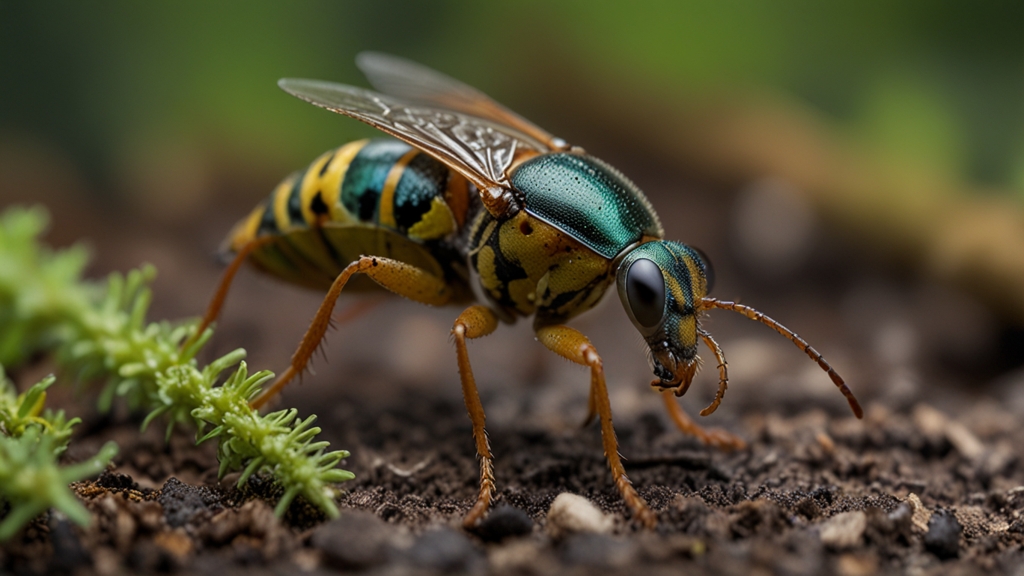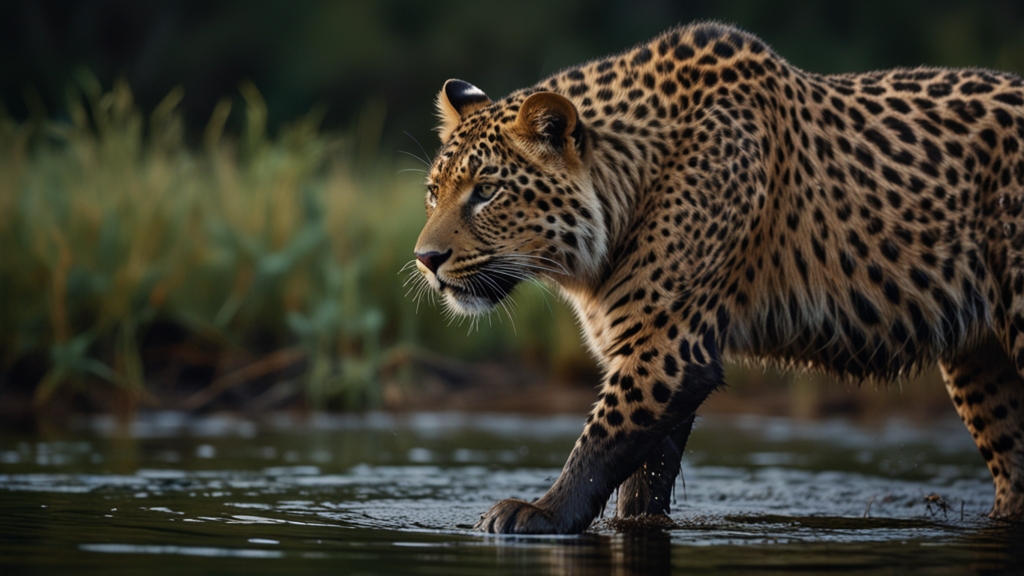Introduction
In the intricate tapestry of our ecosystems, insects play a role that is both profound and indispensable. Often overlooked due to their diminutive size, these tiny giants exert a massive influence on the balance and health of our natural world. In this article, we will explore how insects contribute to various ecological functions, their role in maintaining biodiversity, and the challenges they face in a rapidly changing environment.
Pollination: The Unsung Heroes
When we think of pollinators, bees often come to mind, but they are not the only insects performing this crucial task. Butterflies, moths, beetles, and even flies are responsible for the pollination of countless plants. Without these tiny workers, many of the fruits, vegetables, and flowers we cherish would cease to exist.
“Around 75% of the world’s flowering plants and about 35% of global food crops depend on animal pollinators to reproduce.” — U.S. Department of Agriculture
Insects ensure the production of seeds and fruits, aiding in plant reproduction and the spread of flora. This, in turn, supports a variety of organisms that depend on these plants for food and shelter.
Decomposition: Nature’s Cleanup Crew
Insects also play a critical role in decomposition, breaking down organic matter and recycling nutrients back into the soil. Detritivores like beetles, ants, and certain fly species feast on dead plant and animal matter, promoting soil health and fertility. This process is crucial for nutrient cycling and the sustenance of plant life.
Without these insect decomposers, organic material would accumulate, leading to nutrient depletion and a decline in soil quality. Their work ensures that ecosystems remain productive and capable of supporting diverse forms of life.
Food Source: The Foundation of Food Webs
Insects form the bedrock of many food webs, serving as a primary food source for countless animals. Birds, amphibians, reptiles, and even some mammals rely heavily on insects for their diet. The abundance and diversity of insect life directly influence the health and stability of these predator species.
“Insects are crucial for the diets of birds during breeding seasons; without them, many bird species would fail to raise their young.” — National Geographic
The intricate connections between predators and their insect prey highlight the importance of maintaining insect populations for broader ecosystem health. Disruptions in these relationships can have cascading effects, leading to declines in wildlife and biodiversity.
Biodiversity: The Architects of Ecosystems
The diversity of insects is staggering, with an estimated 10 million species inhabiting every corner of the globe. This diversity enables them to fill numerous ecological niches, from pollinators and decomposers to predators and prey. Their behaviors and interactions contribute to the complexity and resilience of ecosystems.
Insects also aid in controlling pest populations, with predatory species like ladybugs and dragonflies keeping harmful insects in check. This natural pest control is vital for maintaining the balance of ecosystems and reducing the need for chemical pesticides.
Challenges: The Threats to Insect Populations
Despite their ecological importance, insect populations are facing significant threats. Habitat loss, climate change, pollution, and pesticide use have led to alarming declines in many insect species. This decline poses a risk not only to the insects themselves but to the entire ecosystems they support.
Conservation efforts must prioritize the protection and restoration of habitats, alongside promoting sustainable agricultural practices that minimize harm to insect populations. Public awareness and scientific research are crucial in addressing these challenges and ensuring the survival of these vital creatures.
“The loss of insect populations is like losing rivets from an airplane — each loss makes the plane more and more vulnerable to crash.” — Professor Dave Goulson, University of Sussex
Conclusion
Insects, despite their small size, are giants in their ecological impact. From pollination and decomposition to serving as a critical food source and maintaining biodiversity, insects are fundamental to the health of our ecosystems. Recognizing their importance and addressing the threats they face is essential for preserving the intricate balance of the natural world and ensuring a sustainable future for all life forms.






